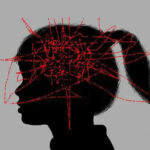
Mental Health Matters: Key Insights and Tips
Key Highlights
- Mental disorders affect 1 in every 8 people worldwide
- Mental disorders involve disturbances in thinking, emotions, or behaviors
- Anxiety and depressive disorders are the most common mental health conditions
- Effective and treatment options exist, but many people lack access to care
- Mental health issues can impact daily and relationships
- Understanding mental health is crucial for society’s well-being
Introduction
Mental health is an essential aspect of overall well-being, yet it is often overlooked or stigmatized. Mental disorders affect a significant portion of the global population, with 1 in every 8 people living with a mental health condition. These disorders encompass a wide range of disturbances in thinking, emotions, and behaviors that can significantly impact a person’s daily life, including their social relationships. However, effective prevention and treatment options exist, offering hope and support to those affected.
The Importance of Mental Health Awareness
Mental health awareness plays a crucial role in addressing mental health conditions and their societal impact. By increasing awareness, we can reduce stigma, promote understanding, and encourage individuals to seek help. It is vital to recognize that mental health conditions are real and can affect anyone, regardless of age, gender, or background. By fostering a supportive and empathetic environment, we can create a society that values mental health and provides the necessary resources for those in need.
Defining Mental Health and Its Scope
Mental health refers to a person’s overall emotional, psychological, and social well-being. It encompasses the way individuals think, feel, and act, as well as their ability to handle stress, relate to others, and make choices. Mental disorders, on the other hand, involve significant disturbances in cognition, emotional regulation, or behavior. These conditions can be caused by various factors, including biological factors, such as genetics or brain chemistry, and life experiences, such as trauma or abuse. Mental health issues can manifest in different ways, impacting daily life, relationships, and overall quality of life. It is essential to understand the scope of mental health in adulthood to recognize and address these conditions effectively.
Why Understanding Mental Health is Crucial for Society
Understanding mental health is crucial for society as a whole. By prioritizing mental health services and resources, we can improve the well-being of individuals and communities. The National Institute of Mental Health emphasizes that better mental health leads to improved cognition, productivity, and social interactions. When individuals have the support and tools to manage their mental health, they can lead fulfilling and meaningful lives. Additionally, prioritizing mental health can reduce the societal and economic burden associated with untreated mental disorders. By investing in mental health services and promoting awareness, we can create a society that values and supports the mental well-being of all its members, including through the use of effective information systems.
Recognizing the Symptoms and Signs of Mental Health Issues
Recognizing the symptoms and signs of mental health issues is crucial for early intervention and support. Mental health conditions can manifest as a combination of physical and psychological symptoms. Physical symptoms may include changes in appetite, sleep disturbances, or unexplained aches and pains. Psychological symptoms can include mood swings, excessive worry or fear, and difficulty concentrating. Anorexia nervosa, a type of eating disorder, often has its onset during adolescence or early adulthood and is associated with premature death due to medical complications or suicide. By being aware of these signs, we can help identify and provide assistance to individuals who may be experiencing mental health challenges.
Common Psychological Symptoms
Common psychological symptoms of mental health issues can vary depending on the specific disorder. However, some common symptoms include:
- Mood disorders: These can involve persistent feelings of sadness, hopelessness, or irritability. Examples include major depressive disorder and bipolar disorder.
- Dissociative disorders: These disorders involve disruptions in a person’s memory, consciousness, or sense of identity. Symptoms may include memory loss, confusion, or feeling detached from oneself.
- Substance use disorders: Individuals with substance use disorders may experience cravings, withdrawal symptoms, and an inability to control their drug or alcohol use.
It is essential to remember that these symptoms can vary in severity and may present differently in each individual. If you or someone you know is experiencing these symptoms, it is important to seek professional help for an accurate diagnosis and appropriate treatment.
Physical Symptoms Often Overlooked
In addition to psychological symptoms, mental health issues can also manifest as physical symptoms. These physical symptoms are often overlooked but can provide valuable insights into a person’s mental well-being. Some commonly overlooked physical symptoms may include:
- Changes in appetite or weight: Mental health conditions can affect a person’s eating habits, leading to significant weight loss or gain.
- Sleep disturbances: Insomnia or excessive sleeping can be indications of underlying mental health challenges.
- Substance abuse: Individuals with mental health issues may turn to drugs or alcohol as a way to cope, leading to substance use disorders.
- Panic attacks: Intense feelings of fear or anxiety accompanied by physical symptoms such as heart palpitations, shortness of breath, or chest pain.
It is important to recognize and address these physical symptoms to ensure comprehensive mental health care.
The Impact of Lifestyle on Mental Health
Lifestyle factors play a significant role in mental health. Choices regarding diet, exercise, sleep, and stress management can greatly impact a person’s overall well-being. By prioritizing a healthy lifestyle, individuals can promote better mental health and resilience.
Role of Diet and Exercise
Diet and exercise are essential components of maintaining good mental health. A nutritious diet can provide the necessary nutrients for brain function and promote overall well-being. Regular exercise has been shown to reduce symptoms of depression and anxiety and improve mood. Additionally, physical health problems, such as heart disease or obesity, can contribute to or worsen mental health conditions. By adopting a balanced diet and engaging in regular exercise, individuals can support their mental and physical well-being.
The Effect of Sleep and Stress Management
Quality sleep and effective stress management are crucial for maintaining good mental health. Lack of sleep can contribute to mood disorders, decreased cognitive function, and increased stress levels. On the other hand, prioritizing quality sleep can enhance overall mental well-being and improve daily functioning. Similarly, effective stress management techniques, such as relaxation exercises or mindfulness practices, can help individuals cope with the stresses of daily life. By prioritizing sleep and implementing stress management strategies, individuals can support their mental health and resilience.
Overview of Mental Health Disorders
Mental health disorders encompass a wide range of conditions that can significantly impact a person’s well-being. Understanding the different types of mental health disorders is essential for recognizing symptoms and providing appropriate support.
Anxiety, Panic Disorders, and PTSD
Anxiety disorders are characterized by excessive fear and worry and related behavioral disturbances. Examples of anxiety disorders include panic disorder, agoraphobia, and social anxiety disorder. These disorders can lead to significant impairment on people’s daily lives, causing avoidance behaviors and increased distress.
Post-traumatic stress disorder (PTSD) can develop after exposure to a traumatic event such as assault, loss of a loved one, or a natural disaster. Effective psychological therapies are available for anxiety disorders, and medication may be prescribed in some cases to manage symptoms. Mental health issues pose complex challenges that impact individuals significantly. Anxiety disorders, characterized by intense fear and worry, can disrupt daily life and lead to avoidance behaviors.
PTSD may manifest after traumatic incidents, necessitating specialized interventions for recovery. Recognizing symptoms and seeking appropriate help are essential in effectively managing mental health conditions. Prioritizing self-care practices like adequate sleep and stress management can enhance overall well-being and resilience.
Mood Disorders: Depression, Bipolar Disorder, and Addiction
Mood disorders, such as depression and bipolar disorder, involve significant disturbances in a person’s mood and emotional well-being. Individuals with bulimia nervosa, a type of eating disorder, are at a significantly increased risk for substance use, suicidality, and health complications. Depression is characterized by prolonged feelings of sadness, hopelessness, and a loss of interest in activities. Bipolar disorder includes alternating episodes of depression and manic symptoms, such as increased energy and impulsivity. Effective treatment options, including medication and psychoeducation, exist to help individuals manage these mood disorders.
Addiction is a complex mental health issue that affects millions of people worldwide. It can manifest in various forms, such as substance addiction, gambling addiction, or even addiction to technology. Addiction not only impacts the individual but also their loved ones and society as a whole. Seeking professional help and support is crucial in overcoming addiction and leading a healthier, fulfilling life.
Schizophrenia and Other Psychotic Disorders
Schizophrenia is a complex psychotic disorder characterized by disruptions in perception and changes in behavior. Symptoms may include hallucinations, delusions, and disorganized thinking. Other psychotic disorders, such as paranoia and paranoid personality disorder, can also cause similar symptoms. Effective treatment options for schizophrenia and other psychotic disorders include medication, psychoeducation, family interventions, and psychosocial rehabilitation.
Challenges in Diagnosing Mental Health
Diagnosing mental health conditions can be challenging due to various factors, including stigma and misconceptions surrounding mental health. The field of mental health is intricate and multifaceted, encompassing a wide range of conditions that can significantly impact individuals’ well-being. Depression and bipolar disorder are common mood disorders that can disrupt daily life with their distinct symptoms. Seeking appropriate treatment, which may involve medication and therapy, is essential in managing these conditions effectively.
Stigma and Misconceptions
Stigma and misconceptions surrounding mental health can hinder accurate diagnosis and appropriate treatment. The American Psychiatric Association emphasizes the importance of reducing stigma and promoting understanding to ensure individuals receive the care they need. By challenging stereotypes and providing accurate information, we can create a supportive environment for those affected by mental health conditions.
Barriers to Accessing Mental Health Services
Barriers to accessing mental health services can further complicate the diagnosis and treatment of mental health conditions. In the United States and many other countries, there is a significant gap between the need for mental health care and its provision. Barriers may include limited availability of mental health services, lack of insurance coverage, or cultural and societal factors that hinder the needs of people with mental disorders. It is crucial to address these barriers and prioritize access to mental health services for all individuals.
Treatment Options Available
More than 1 in 5 US adults live with a mental illness. Various treatment options are available to help individuals manage mental health conditions and improve their overall well-being. Treatment options for mental health conditions are diverse, ranging from medications to psychoeducation, family interventions, and psychosocial rehabilitation.
Despite the availability of these treatments, diagnosing mental illness early and seeking appropriate care remains a critical step towards recovery. It is important for individuals to work with mental health professionals to determine the most effective treatment plan tailored to their specific needs. By exploring different treatment modalities and staying committed to self-care practices, individuals can navigate their mental health journey with resilience and hope. Remember, seeking help is a sign of strength, and it is never too late to prioritize your mental well-being.
Mental illness can have a significant impact on an individual’s overall well-being. It is associated with distress and difficulties in functioning in various aspects of life, such as social interactions, work responsibilities, and family relationships. Mental illness is prevalent, affecting nearly one in five U.S. adults each year. Additionally, mental health conditions can coexist with physical health problems, leading to complex challenges that require comprehensive care and support to address effectively.
Overcoming these barriers is essential in ensuring individuals receive timely and appropriate care. Addressing societal and cultural factors that contribute to barriers in accessing mental health services is crucial for improving overall mental well-being. By promoting understanding, reducing stigma, and enhancing access to care, we can create a supportive environment for individuals with mental health conditions.
Medication and Its Role
Medication can play a vital role in managing mental health conditions, particularly for individuals with severe symptoms or specific disorders, such as substance use disorders. Medications can help stabilize moods, reduce anxiety, and manage symptoms associated with various mental health conditions, including addiction. However, it is important to work closely with a healthcare professional to find the right medication and dosage, as each person’s needs may vary. Additionally, understanding potential side effects and risks associated with medication is essential for making informed decisions about treatment.
Psychotherapy and Counseling
Psychotherapy and counseling are effective treatment options for individuals with mental health conditions. Different types of therapy, such as cognitive-behavioral therapy (CBT) or interpersonal therapy, can help individuals develop coping strategies, improve communication skills, and address underlying issues contributing to their mental health challenges. Counseling can also provide a safe and supportive space for individuals to express their feelings and concerns. It is important to find a therapist or counselor who specializes in the specific mental health condition and treatment approach that best suits the individual’s needs.
Alternative Therapies and Support Systems
In addition to traditional treatment options, alternative therapies and support systems can also play a valuable role in managing mental health conditions. These may include practices such as art therapy, yoga, meditation, or support groups. Alternative therapies can provide individuals with additional tools for self-expression, stress reduction, and emotional well-being. Support systems, including family members, friends, and caregivers, are essential in providing understanding, empathy, and practical assistance throughout the recovery journey.
Conclusion
Understanding mental health is crucial for a thriving society. By recognizing the signs, promoting awareness, and seeking help when needed, we can break the stigma surrounding mental health issues. It’s essential to prioritize mental well-being, just as we do our physical health, through self-care practices, seeking professional support, and fostering a supportive community. Together, we can create an environment where mental health is valued, understood, and nurtured. Let’s continue to educate ourselves and others, offer compassion, and advocate for mental health awareness to cultivate a healthier and more understanding society.
Frequently Asked Questions
How Can I Help Someone with Mental Health Issues?
Supporting someone with mental health issues involves active listening, offering empathy, and encouraging professional help when needed. Creating a supportive environment and promoting overall wellness can contribute to their recovery.
Are Mental Health Problems Curable?
While mental health problems may not have a definitive cure, they are manageable with appropriate treatment, recovery, and the management of symptoms. With support and resilience, individuals can lead fulfilling lives.
Why is mental health important for overall health?
Mental health is crucial for overall health as it impacts every aspect of a person’s life. Mental and physical health are interconnected, and prioritizing mental well-being enhances quality of life and daily functioning.
Is it possible to improve mental health without medication?
Yes, mental health can be improved without medication through various strategies like therapy, exercise, mindfulness practices, proper nutrition, quality sleep, social support, and stress management techniques. It’s important to consult mental health professionals for personalized guidance and support.
How does social media impact mental health?
Excessive use of social media can lead to mental health issues like anxiety and depression due to constant comparison, cyberbullying, and feelings of inadequacy. It can also disrupt sleep patterns and contribute to addiction-like behaviors, affecting overall mental well-being negatively.
What are some common signs and symptoms of mental health issues?
Common signs and symptoms of mental health issues include mood changes, warning signs of distress, and impairment in daily functioning. Early intervention is essential for effective treatment and support.



